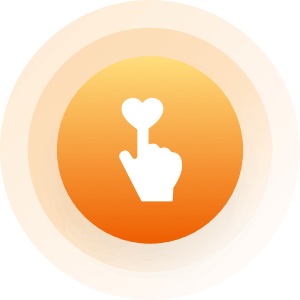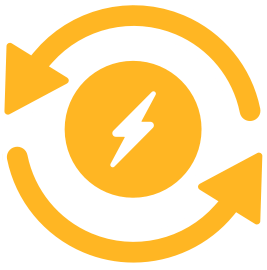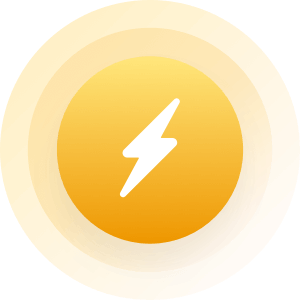| Topic: Drug Control? No, Citizen Control | |
|---|---|
|
Drug Control? No, Citizen Control
By Siobhan Reynolds Published 04/20/09 We keep hearing about how the War on Drugs has failed. But the truth is, the War on Drugs has been tremendously successful, that is if you wanted your country to be a police state, your Congress completely unresponsive to the needs of the people, and your doctors letting you and your loved ones live and die in unnecessary pain. The marijuana activists have made a lot of progress toward marijuana legalization and overall, that is a positive development. What isn't positive is that they have done so, at least in part, by covering up the crackdown on medical pain management that has been going on full tilt since 2001. Veterans, cancer patients, people who have been unfortunate in any number of ways (and I am talking here about millions of Americans) have been unable to get pain medications that are supposed to be legal, but which, in reality, are only "semi-legal" -- drugs whose legality can be withdrawn by law enforcement whenever the DEA decides that this or that doctor isn't controlling his patients sufficiently. This has meant that while no one was looking, our most vulnerable citizens, those in crushing chronic pain, have been denied pain care and allowed to die abandoned by us all. The Controlled Substances Act makes it a crime to buy or sell controlled substances except as authorized by the Attorney General of the United States. When the act was passed in the early 1970's doctors were told that possession of a medical license and the issuance of a DEA certificate would automatically exempt them from prosecution -- in other words, if a doctor was acting as a doctor, he or she would be safe. Shortly thereafter the Department of Justice included some language in the Code of Federal Regulations that changed the terms of the deal. A doctor had to write such prescriptions not only in "the course of professional practice" but with a "legitimate medical purpose." Now the coast was clear for the USDOJ to criminalize any physician whose practice of pain medicine didn't meet with a single prosecutor's notions of how medicine ought to be practiced. When then Attorney General John Ashcroft went into the state of Oregon and attempted to defeat the state's assisted suicide law by declaring the practice of assisted suicide "illegitimate," the ruse was exposed. It was US government attorneys themselves who in court documents acknowledged that they had been prosecuting pain treating physicians on what amounted to medical disagreements. District Judge Jones scolded the government and later the United States Supreme Court forcefully clarified that the act only criminalized physician conduct that was drug dealing as "conventionally understood." But the Feds were undeterred. In direct defiance of the Supreme Court, the Department of Justice continued its crackdown on medical pain management, prosecuting some 400 physicians since 2003. Many of these doctors are serving decades -- long prison sentences, having been found guilty of writing "illegitimate prescriptions" by lay juries. How does a jury come to conclude that a prescription was illegitimate? Patients looking for reductions in their sentences testify that they exaggerated their pain to the doctor, and, too, the government brings in one of several hired gun "expert witnesses" to testify that the doctor "should have known" the patients were abusing the medications, based on the presence of certain "red flags" that the "expert" says should have been a clear warning to the doctor that the patient should have been cut off his medications. Sound to you like witch trials? That is exactly what they are. Recently, the FDA got into the act and withdrew some 13 pain medicines from the market. Those few patients who had been getting by were now told by pharmacists that they would not be able to fill their prescriptions. Shockingly, academic medicine, funded by government grants, has nothing to say in the face of these outrages. Moreover, the mainstream press such as the New York Times and the Associated Press continue to trumpet the government's press strategy -- portraying actions taken against sick people as responsive to an utterly undemonstrated "health crisis" of prescription drug overdoses. Time and again, stories about what's actually happening to the patients are buried by editors. The political consequences of this latest crackdown are almost as grim. The Federal government has managed to completely subvert the regulation of medicine in the states, as concerns the management of pain, turning medical boards into kangaroo courts where doctors who mistakenly thought their job was to heal the sick and relieve suffering, get their medical licenses summarily taken away on the DEA's say so. Patients are afraid to speak out, lest they lose the medicine that keeps them working. Physicians are counseled by white collar attorneys to put their heads down and take a plea deal. And all of us are being registered with pharmacy computers so that those who take any controlled substances -- or in the latest insanity, even cold medicines -- are being monitored by the government. And the abuses proliferate. The War on Terror was not the first overblown fear campaign that was used to destroy our liberties. The War on Drugs and the nearly one hundred year old Federal campaign against us all, called "drug prohibition," pioneered the tactics that many people now view as transparently authoritarian. Once you come to understand that "drug control" was never intended to control drugs, but rather to create a pretext for the Federal control of citizens, you come to see that the "War's" goals have been met. . . and then some. Siobhan Reynolds, head of the Pain Relief Network and widow of a chronic pain patient, is working against the US Government's campaign against pain patients and the physicians who treat them. She is also the author of an upcoming book about her experiences in a groundbreaking case currently taking place in Wichita, Kansas. The book, No Kansas To Come Home To, is expected to be published this fall. http://www.campaignforliberty.com/article.php?view=51 |
|
|
|
|
|
I won't comment on the rest as I'm not informed enough, however, I really do resent being treated like a criminal because I want to buy sudafed. I buy the maximum amount "allowed" because most places are out of it anymore because of these rules. I have moderate/severe allergy and sinus problems and the only thing I can take is sudafed, as antihistamines cause me severe pain and nosebleeds. Sucks.
|
|
|
|
|
|
I won't comment on the rest as I'm not informed enough, however, I really do resent being treated like a criminal because I want to buy sudafed. I buy the maximum amount "allowed" because most places are out of it anymore because of these rules. I have moderate/severe allergy and sinus problems and the only thing I can take is sudafed, as antihistamines cause me severe pain and nosebleeds. Sucks. Suz, We have a big meth problem in rural Missouri. It starts only an hour drive outside of St. Louis. Houses are being blown up when they make it. You can go to those Walmarts and see their meth mouths (very bad teeth). They use the Sudafed and made it bad for the rest of us. I've had to get it from behind Walgreens counter. Other things are showing up behind the Walgreens counter too. People are stealing them so they take them off the shelf. |
|
|
|
|
|
The meth epidemic is blowback from the drugwar.
|
|
|
|
|
|
The meth epidemic is blowback from the drugwar. How is that? I found this article about it. I think it's interesting. http://www.pbs.org/wgbh/pages/frontline/meth/interviews/pennal.html |
|
|
|
|
|
I won't comment on the rest as I'm not informed enough, however, I really do resent being treated like a criminal because I want to buy sudafed. I buy the maximum amount "allowed" because most places are out of it anymore because of these rules. I have moderate/severe allergy and sinus problems and the only thing I can take is sudafed, as antihistamines cause me severe pain and nosebleeds. Sucks. Suz, We have a big meth problem in rural Missouri. It starts only an hour drive outside of St. Louis. Houses are being blown up when they make it. You can go to those Walmarts and see their meth mouths (very bad teeth). They use the Sudafed and made it bad for the rest of us. I've had to get it from behind Walgreens counter. Other things are showing up behind the Walgreens counter too. People are stealing them so they take them off the shelf. Oh, I know why and I get it. But, there should be some way of compromising. Me, I buy 1-2 boxes of 48 pills a month, depending on the season and how bad my sinuses are. It's just such a pain to have to try to hit the pharmacy when they're open, produce the license, sign a couple of forms, etc and most of the time, the pharmacies don't even carry it or are out of it. Then I have to drive or call around all over town to find it. If I don't have time and let it go, then I end up with yet another sinus infection, necessitating a trip to the doctor, more antibiotics, etc. Yet, my 14 year old son can walk into any store and buy as much Nyquil as his little heart desires, which (if you can stomach it) has a higher alcohol content than beer and wine. Go figure 
|
|
|
|
|
|
Wow, Suz, are they that strict now? I remember buying Sudafed last year and only had to get it from behind the cashier's counter at Walgreens.
Hmm...I never thought about Nyquil that way.  You are so right. You are so right.
|
|
|
|
|
|
Wow, Suz, are they that strict now? I remember buying Sudafed last year and only had to get it from behind the cashier's counter at Walgreens. Hmm...I never thought about Nyquil that way.  You are so right. You are so right.
Yeah, they are. Supposedly, the store collects your information and it's entered into a national database, anyone who buys "too much" is flagged as a potential methmaker (or whatever it's called). But, I've noticed that I can go to different Walmart's, or CVS or wherever and they're not centralized within a chain. I wonder how much of this information is actually making it to the database, as they don't have the chain databases updated. |
|
|
|
|
|
Wow, Suz, are they that strict now? I remember buying Sudafed last year and only had to get it from behind the cashier's counter at Walgreens. Hmm...I never thought about Nyquil that way.  You are so right. You are so right.
Yeah, they are. Supposedly, the store collects your information and it's entered into a national database, anyone who buys "too much" is flagged as a potential methmaker (or whatever it's called). But, I've noticed that I can go to different Walmart's, or CVS or wherever and they're not centralized within a chain. I wonder how much of this information is actually making it to the database, as they don't have the chain databases updated. Hmm..I'll have to see how we do it here the next time I get some. I don't need them like you do though. We call them meth heads, btw. |
|
|
|
|
|
Good to know
  
|
|
|
|
|
|
Good to know   
What you always wanted to know but were afraid to ask.  
|
|
|
|
|
|
I wish they would emphasize the results of drug use in schools more. If it would help keep people off it is another question, but it is a start.
If such movies can show the results of what drugs can do to a person, especially teenagers then perhaps it will keep curious minds away from it. I have never seen so many people attached to drugs in my life until I moved to Miami. People being late for work, crashing their cars, smelling horrible, dazing out at work, having multiple personalities, and just rendering into nowhere is some of the observances I noticed. Also the way many go about it as if it isn't a big thing and that everyone does it after a hard days work. When a mass majority believe it to be a normal thing to do, many join believing it to be true. Perhaps it needs to be emphasized more in schools starting at a early age and even more in colleges believe it or not. If the sales go down then the drug cartels, lords, gangs, or whatever you call them might have to find a different alternative of making money. Will it solve the problem? Probably not, but it is a start and the best I got thus far. Perhaps you have a better alternative and would like to share your thoughts on the subject. |
|
|
|
|
|
Smiless,
My child's school had the DARE program last year. My child completed the program and they had a graduation. http://www.dare.com/home/default.asp I'm hoping that the school offers it again. |
|
|
|
|
|
Smiless, My child's school had the DARE program last year. My child completed the program and they had a graduation. http://www.dare.com/home/default.asp I'm hoping that the school offers it again. Every school should have this. I know the school my child goes to has programs also, but it is just utterly sad that not all schools (private or not) emphasize the importance of such education. Most schools just go over it quickly and that is it. There should also be programs for adults. I mean it just seems regardless of these programs in schools or not, it doesn't seem to make a significant difference. There has to be a better alternative and that would be my primary question. Is there a way to resolve the issues on drug use and addiction to this country? |
|
|
|
|
|
Smiless, My child's school had the DARE program last year. My child completed the program and they had a graduation. http://www.dare.com/home/default.asp I'm hoping that the school offers it again. Every school should have this. I know the school my child goes to has programs also, but it is just utterly sad that not all schools (private or not) emphasize the importance of such education. Most schools just go over it quickly and that is it. There should also be programs for adults. I mean it just seems regardless of these programs in schools or not, it doesn't seem to make a significant difference. There has to be a better alternative and that would be my primary question. Is there a way to resolve the issues on drug use and addiction to this country? I wish I knew the answer to that, Smiless. Heavy sigh. 
Someone close to me is a recovering addict. I used to go to Nar-Anon. I used to work in the VA drug rehab. There is always a waiting list for that program. |
|
|
|
|
|
Smiless, My child's school had the DARE program last year. My child completed the program and they had a graduation. http://www.dare.com/home/default.asp I'm hoping that the school offers it again. Every school should have this. I know the school my child goes to has programs also, but it is just utterly sad that not all schools (private or not) emphasize the importance of such education. Most schools just go over it quickly and that is it. There should also be programs for adults. I mean it just seems regardless of these programs in schools or not, it doesn't seem to make a significant difference. There has to be a better alternative and that would be my primary question. Is there a way to resolve the issues on drug use and addiction to this country? I wish I knew the answer to that, Smiless. Heavy sigh. 
Someone close to me is a recovering addict. I used to go to Nar-Anon. I used to work in the VA drug rehab. There is always a waiting list for that program. Most Americans I have met can claim they know someone who is either recovering or heavy on the use of drugs. I have yet to meet one who hasn't been exposed to it one way or another. That being said the question is the war on drugs really a winning battle or not? In any case, perhaps one should study other countries of origin and see the ones that are actually winning the war on drugs and what methods do they use to ensure a faint of a brighter future for the people who live in them. It is just ideas pommeling in my mind. Don't mind me as I am naturally a nutcase without the influence of drugs. These are topics that have been on thousands of forums around the world and at the end no specific resolution is found. It is pretty sad if you think about it. May a genius evolve one day to topple topics that ensure safety and happiness for all the people throughout the world. |
|
|
|
|
|
i just got up so I'm working on coffee...i'll respond soon
|
|
|
|
|
|
The meth epidemic is blowback from the drugwar. How is that? I found this article about it. I think it's interesting. http://www.pbs.org/wgbh/pages/frontline/meth/interviews/pennal.html It became a way for the upper lovers to circumvent the high prices of Cocaine, cheap, easy enough to make and can be done clandestinely. Amphetamines were introduced around WWII, and phased out around the 60’s and 70’s. Meth made a vicious comeback around the early 90’s and has maintained it’s stronghold ever since. Meth is a completely synthetic central nervous system stimulant which is highly addictive and dangerous. Meth comes in powder, white crystals (crystal meth), and tablet forms. Meth is relatively cheap to buy when compared with other drugs like cocaine, and because it is produced artificially, clandestine labs have dotted the country’s rural areas. Many users and dealers can get the recipe for cooking meth on the internet and with close to $200.00, they can buy over the counter medication (cold medicine), cat litter, paint thinner and lighter fluid, among other chemicals. Nearly 65% of all meth distributed in this country come from “super labs” in Mexico and southern California run by gangs and organized crime associates. The other 35% of meth is produced in these clandestine meth labs, which have been discovered in rural farms, homes, storage facilities, car trunks, and basements. http://www.treatment-centers.net/meth-addiction.html |
|
|
|
|
|
Edited by
Winx
on
Mon 04/20/09 11:55 AM
|
|
|
The meth epidemic is blowback from the drugwar. How is that? I found this article about it. I think it's interesting. http://www.pbs.org/wgbh/pages/frontline/meth/interviews/pennal.html It became a way for the upper lovers to circumvent the high prices of Cocaine, cheap, easy enough to make and can be done clandestinely. Amphetamines were introduced around WWII, and phased out around the 60’s and 70’s. Meth made a vicious comeback around the early 90’s and has maintained it’s stronghold ever since. Meth is a completely synthetic central nervous system stimulant which is highly addictive and dangerous. Meth comes in powder, white crystals (crystal meth), and tablet forms. Meth is relatively cheap to buy when compared with other drugs like cocaine, and because it is produced artificially, clandestine labs have dotted the country’s rural areas. Many users and dealers can get the recipe for cooking meth on the internet and with close to $200.00, they can buy over the counter medication (cold medicine), cat litter, paint thinner and lighter fluid, among other chemicals. Nearly 65% of all meth distributed in this country come from “super labs” in Mexico and southern California run by gangs and organized crime associates. The other 35% of meth is produced in these clandestine meth labs, which have been discovered in rural farms, homes, storage facilities, car trunks, and basements. http://www.treatment-centers.net/meth-addiction.html War, People that use coke or are crack heads have coke and crack as their drug of choice. They usually don't go for meth. Well, they could on occasion if they were out of coke or crack and needed to get high. But..it's not their drug of choice/addiction. Do you know what I mean? Hmm..the info you posted said that amphetamines phased out in the 60's and 70's. I graduated from high school in '77. I saw quite a few people using speed in the 70's and 80's. I guess the midwest is always last. lol |
|
|
|
|
|
Drug Control? No, Citizen Control By Siobhan Reynolds Published 04/20/09 We keep hearing about how the War on Drugs has failed. But the truth is, the War on Drugs has been tremendously successful, that is if you wanted your country to be a police state, your Congress completely unresponsive to the needs of the people, and your doctors letting you and your loved ones live and die in unnecessary pain. The marijuana activists have made a lot of progress toward marijuana legalization and overall, that is a positive development. What isn't positive is that they have done so, at least in part, by covering up the crackdown on medical pain management that has been going on full tilt since 2001. Veterans, cancer patients, people who have been unfortunate in any number of ways (and I am talking here about millions of Americans) have been unable to get pain medications that are supposed to be legal, but which, in reality, are only "semi-legal" -- drugs whose legality can be withdrawn by law enforcement whenever the DEA decides that this or that doctor isn't controlling his patients sufficiently. This has meant that while no one was looking, our most vulnerable citizens, those in crushing chronic pain, have been denied pain care and allowed to die abandoned by us all. The Controlled Substances Act makes it a crime to buy or sell controlled substances except as authorized by the Attorney General of the United States. When the act was passed in the early 1970's doctors were told that possession of a medical license and the issuance of a DEA certificate would automatically exempt them from prosecution -- in other words, if a doctor was acting as a doctor, he or she would be safe. Shortly thereafter the Department of Justice included some language in the Code of Federal Regulations that changed the terms of the deal. A doctor had to write such prescriptions not only in "the course of professional practice" but with a "legitimate medical purpose." Now the coast was clear for the USDOJ to criminalize any physician whose practice of pain medicine didn't meet with a single prosecutor's notions of how medicine ought to be practiced. When then Attorney General John Ashcroft went into the state of Oregon and attempted to defeat the state's assisted suicide law by declaring the practice of assisted suicide "illegitimate," the ruse was exposed. It was US government attorneys themselves who in court documents acknowledged that they had been prosecuting pain treating physicians on what amounted to medical disagreements. District Judge Jones scolded the government and later the United States Supreme Court forcefully clarified that the act only criminalized physician conduct that was drug dealing as "conventionally understood." But the Feds were undeterred. In direct defiance of the Supreme Court, the Department of Justice continued its crackdown on medical pain management, prosecuting some 400 physicians since 2003. Many of these doctors are serving decades -- long prison sentences, having been found guilty of writing "illegitimate prescriptions" by lay juries. How does a jury come to conclude that a prescription was illegitimate? Patients looking for reductions in their sentences testify that they exaggerated their pain to the doctor, and, too, the government brings in one of several hired gun "expert witnesses" to testify that the doctor "should have known" the patients were abusing the medications, based on the presence of certain "red flags" that the "expert" says should have been a clear warning to the doctor that the patient should have been cut off his medications. Sound to you like witch trials? That is exactly what they are. Recently, the FDA got into the act and withdrew some 13 pain medicines from the market. Those few patients who had been getting by were now told by pharmacists that they would not be able to fill their prescriptions. Shockingly, academic medicine, funded by government grants, has nothing to say in the face of these outrages. Moreover, the mainstream press such as the New York Times and the Associated Press continue to trumpet the government's press strategy -- portraying actions taken against sick people as responsive to an utterly undemonstrated "health crisis" of prescription drug overdoses. Time and again, stories about what's actually happening to the patients are buried by editors. The political consequences of this latest crackdown are almost as grim. The Federal government has managed to completely subvert the regulation of medicine in the states, as concerns the management of pain, turning medical boards into kangaroo courts where doctors who mistakenly thought their job was to heal the sick and relieve suffering, get their medical licenses summarily taken away on the DEA's say so. Patients are afraid to speak out, lest they lose the medicine that keeps them working. Physicians are counseled by white collar attorneys to put their heads down and take a plea deal. And all of us are being registered with pharmacy computers so that those who take any controlled substances -- or in the latest insanity, even cold medicines -- are being monitored by the government. And the abuses proliferate. The War on Terror was not the first overblown fear campaign that was used to destroy our liberties. The War on Drugs and the nearly one hundred year old Federal campaign against us all, called "drug prohibition," pioneered the tactics that many people now view as transparently authoritarian. Once you come to understand that "drug control" was never intended to control drugs, but rather to create a pretext for the Federal control of citizens, you come to see that the "War's" goals have been met. . . and then some. Siobhan Reynolds, head of the Pain Relief Network and widow of a chronic pain patient, is working against the US Government's campaign against pain patients and the physicians who treat them. She is also the author of an upcoming book about her experiences in a groundbreaking case currently taking place in Wichita, Kansas. The book, No Kansas To Come Home To, is expected to be published this fall. http://www.campaignforliberty.com/article.php?view=51 |
|
|
|
|











